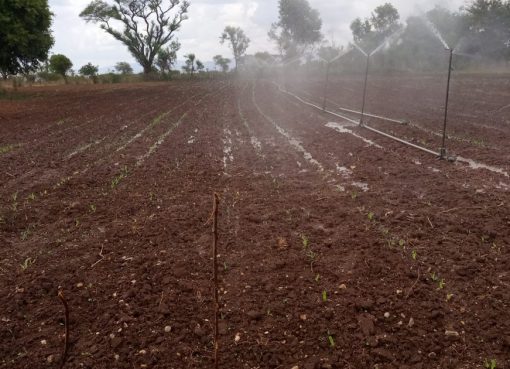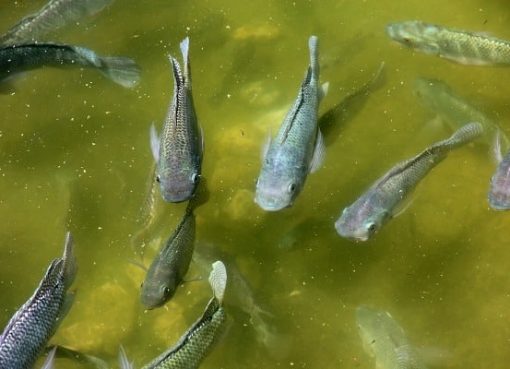County governments have been challenged to invest in technologies that convert solid waste into energy and fuel.
The Transport, Infrastructure, Housing and Urban Development Cabinet Secretary (CS), James Macharia said that generation of power from waste has the potential to reduce environmental degradation and increase employment opportunities.
Speaking at the Nakuru Njoro Sewerage Treatment works during celebrations to mark this year’s UN-Habitat Day, Macharia noted that rapid urbanisation, improved economic situation and industrialisation had transformed solid waste management into one of the greatest challenges facing major urban centres in Kenya.
“This calls for Kenyan cities, towns and communities to reduce, reuse and recycle waste. Proper sanitation programmes including adequate landfill sites can help cities to improve the current state of solid waste management and save money.
Counties must urgently exploit the energy potential stored in waste through major available waste-to-energy technologies and also strategic action plan for implementation of these technologies,” said the CS.
He hailed the Nakuru Water and Sanitation Services Company (NAWASSCO) which three years ago embarked on a project that turns waste into affordable and sustainable energy.
The company is making briquettes — a block of compressed charcoal or coal dust used as fuel — from human waste.
NAWASSCO taps the waste from the sewerage system, which accounts for only 27 per cent of Nakuru’s sludge.
However, this is not the only source of materials. Waste from areas not connected to the sewerage system — totaling between 50 tonnes and 80 tonnes every day — is delivered by exhauster trucks.
The CS noted that innovative recycling of solid waste would also offer employment to the increasing number of unemployed or underemployed youth in the country.
“Counties are witnessing increased solid generation. Eight five percent of waste generated in Kenyan urban centres is from domestic homes. The country now needs prudent environment conservation strategies that will also offer employment opportunities,” said Macharia.
The UN-Habitat Country Representative, Raphael Tust said this year’s celebrations whose theme was Technology as an Innovation tool to transform waste to wealth were placing an emphasis on the potential waste presented to communities and cities to bring wealth and change.
“We need innovative technologies and approaches that change the way we think about, use and treat solid, liquid, domestic, industrial and commercial waste. Cities need to explore the 5R of rethinking, refusing, reducing, reusing and recycling and opportunities that transform waste to wealth.
Lack of adequate waste management has resulted in excessive air, soil and water pollution, threatening public health, ecosystems and biodiversity, as well as accumulating immense quantities of waste in the world’s oceans.
From innovating waste management through the 5Rs, cities can resolve not only the challenge, but also create employment, promote economic growth, improve health and ecosystems – which in turn contributes to happier, greener and healthier cities – and can create enormous savings for cities and municipalities,” said Tust.
He said cities world over discharge between 7 to 10 tons of solid waste per day, while 85 percent of waste water is drained into lakes, oceans and rivers without being treated.
Tust called on devolved units to transform urbanisation as a source of value and economic empowerment by recycling waste.
“Sustainable waste management will contribute towards checking climate change. It has the capacity to reduce greenhouse gas emissions by 20 percent,” he said.
Waste can also be turned into useful raw materials that can make stationery, fabrics and other value added products,” said the Un-habitat County representative.
The Nakuru governor, Lee Kinyanjui said the county’s population was growing at a rate of between 7 to 10 percent per year, which translated into increased solid waste.
He said every tonne of briquettes recycled from human waste had a potential to save 88 trees.
“We are indirectly contributing to increased forest cover. The project besides taking care of solid waste is also a viable alternative to firewood and charcoal and has created numerous employment opportunities,” he stated.
Kinyanjui revealed that a recreational center and a park will be established at the recently rehabilitated Giotto Dumpsite.
An average of 45 per cent of waste goes uncollected in six major towns across the country, according to an official report by the National Environmental Complaints Committee.
Nairobi, Kisumu, Thika, Nakuru, Mombasa and Eldoret towns generate an estimated 6,000 tonnes of waste daily. However, only 3,962 tonnes are collected while over 2,000 tonnes remain uncollected.
According to the report, Mombasa tops the list with 770 tonnes of uncollected waste although 65 per cent of the 2,200 tonnes of generated waste is collected daily.
Kisumu County leads in those with the least effort being made to collect daily generated garbage.
Only 20 per cent is collected, according to the report, leaving 80 tonnes uncollected.
Nairobi tops the list in active waste collection – 80 per cent of the daily generated garbage is collected.
However, 240 tonnes of waste still goes uncollected.
Other towns, including Eldoret leave behind 270 tonnes daily while Thika and Nakuru leave 60 and 138 tonnes respectively.
By Anne Mwale




